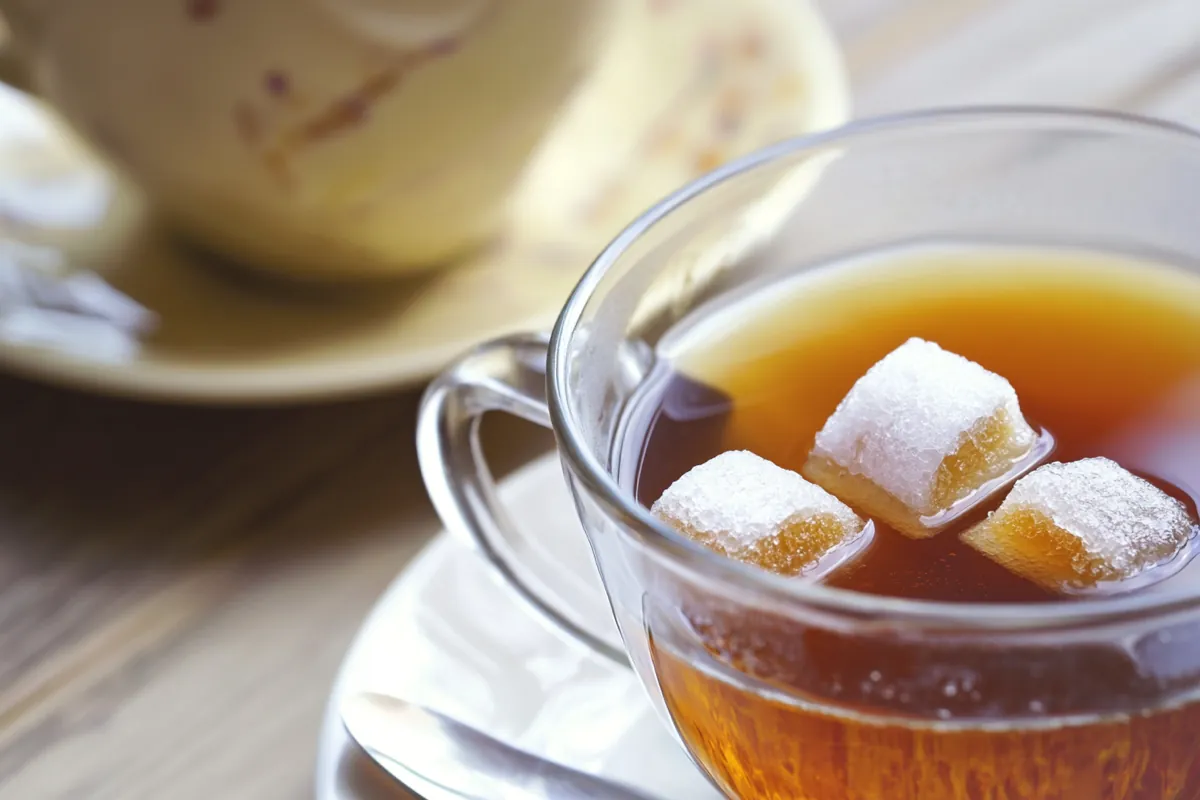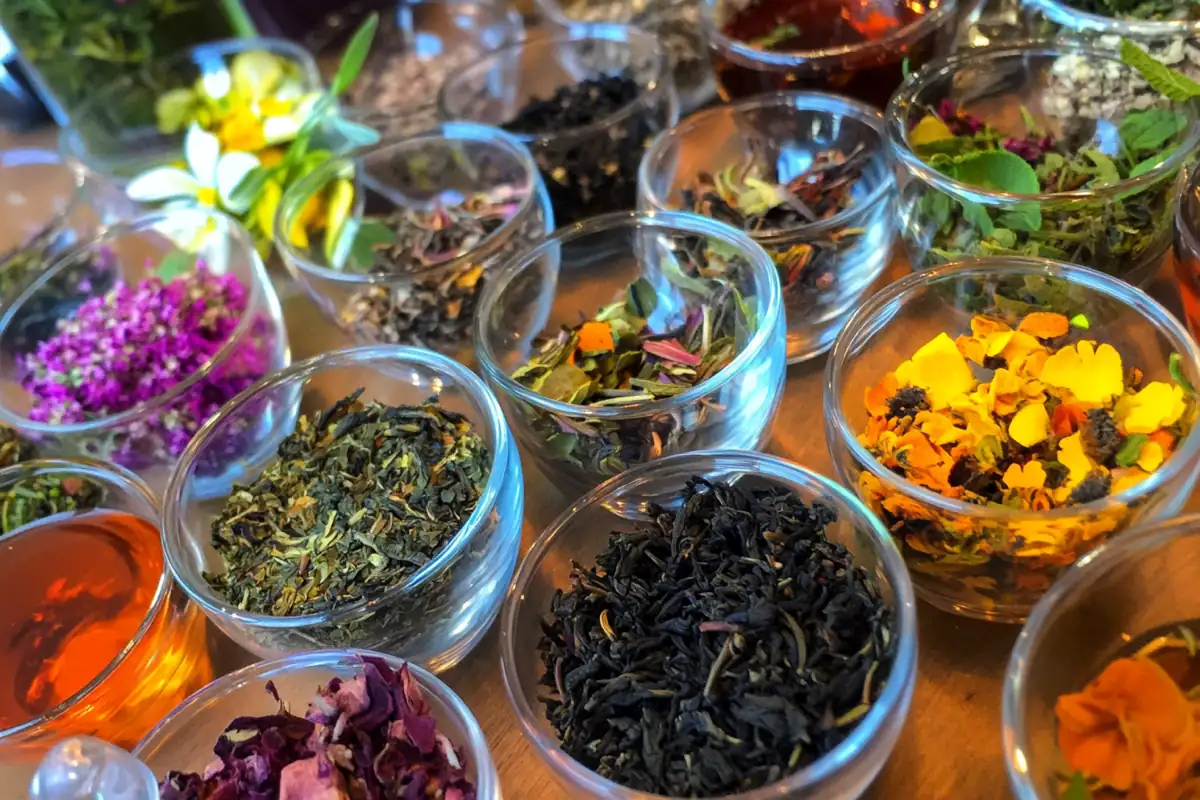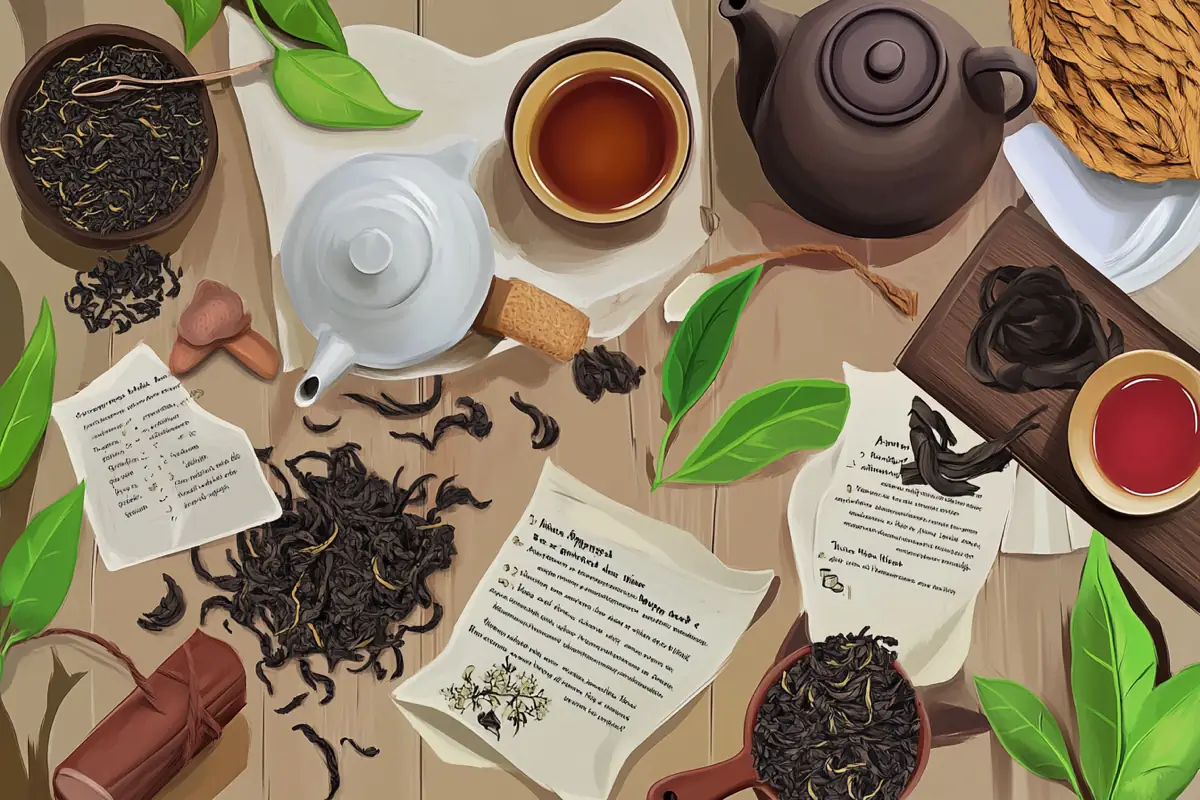Tea is one of the most popular beverages worldwide, enjoyed for its flavors and potential health benefits. However, not all teas are created equal. Some may even be quite unhealthy. In this article, we will explore what is the unhealthiest tea, the potential downsides of consuming certain types of tea, and how to make healthier choices.
Table of Contents
Understanding Tea: An Overview
What is Tea?
Tea is made from the leaves of the Camellia sinensis plant. It comes in various forms, including green, black, white, oolong, and herbal teas. Each type has distinct flavors and health properties.
Origin and Types of Tea
Tea originates from Asia, particularly China and India, and has been consumed for thousands of years. The primary types of tea include:
- Green Tea: Made from unoxidized leaves, known for its antioxidants.
- Black Tea: Fully oxidized, offering a stronger flavor and higher caffeine content.
- Oolong Tea: Partially oxidized, balancing flavors of green and black tea.
- Herbal Tea: Not made from the Camellia sinensis plant, these infusions can include various herbs, fruits, and flowers.
Understanding these types can help you choose the right tea for your health.
Health Benefits of Tea
Tea is often praised for its health benefits, including:
- Antioxidants that reduce inflammation.
- Improved heart health.
- Enhanced mental alertness.
- Support for weight management.
While many teas provide health benefits, some can be less healthy due to additives or brewing methods.
The Dark Side: What Makes Tea Unhealthy?
Despite the advantages, certain factors can make tea unhealthy. It’s essential to be aware of these potential downsides.
Common Additives in Tea
Many people enjoy tea with added ingredients, which can negatively impact its healthiness.
Sugar and Artificial Sweeteners
Adding sugar or sweeteners to tea can significantly increase calorie content. Regular consumption may lead to weight gain and other health issues. Opting for natural sweeteners or drinking tea without added sugars is advisable.
Creamers and Dairy Products
Incorporating creamers or milk can also alter the health profile of tea. For instance, milk tea, while delicious, can contain high levels of calories and fat.
What is the unhealthiest tea?
Determining the unhealthiest tea can depend on several factors, including preparation and consumption habits. However, many experts suggest that milk tea with added sugars and creamers might be among the least healthy options available.
Understanding the various tea types and their potential health impacts helps you make informed choices. Choosing wisely can ensure you enjoy all the benefits tea has to offer without the downsides.

Analyzing Popular Teas
When it comes to tea, not all varieties are created equal. In this section, we will explore different popular tea options, focusing particularly on milk tea and green tea, while also addressing the question of which type of tea is best for your health.
Is Milk Tea Unhealthy?
Milk tea is a beloved beverage in many cultures, especially in Asia. However, its health implications can be a concern.
Nutritional Breakdown of Milk Tea
Milk tea typically combines brewed black tea with milk and sweeteners. Here’s a quick look at its nutritional components:
- Calories: Depending on the type and amount of milk and sugar, a serving can contain 200-400 calories.
- Fat: Whole milk adds saturated fat, which may affect heart health if consumed excessively.
- Sugar: Many milk teas are heavily sweetened, contributing to high sugar intake.
While it can be a comforting drink, regular consumption may lead to health issues like weight gain and increased blood sugar levels.
Effects of Excessive Milk in Tea
Drinking milk tea in moderation is generally fine; however, excessive consumption can lead to:
- Increased cholesterol levels due to saturated fats.
- Potential digestive issues for those who are lactose intolerant.
- Elevated blood sugar levels from added sweeteners.
To enjoy milk tea without compromising your health, consider using low-fat milk or plant-based alternatives, and reduce the amount of sugar.
What is Green Tea?
Green tea is often hailed as one of the healthiest teas available. Unlike black tea, it is made from unoxidized leaves, retaining more antioxidants.
Health Benefits of Green Tea
Green tea is rich in catechins, a type of antioxidant that offers numerous health benefits, including:
- Boosting metabolism and aiding in weight loss.
- Reducing the risk of heart disease.
- Enhancing brain function and lowering the risk of neurodegenerative diseases.
- Supporting healthy skin.
Because of these benefits, many consider green tea the best tea for health.
Potential Risks of Green Tea
While green tea is generally healthy, there are some potential risks to be aware of:
- Caffeine Sensitivity: Some individuals may experience jitters or anxiety from caffeine in green tea.
- Iron Absorption: Excessive consumption can inhibit iron absorption, especially in those with iron deficiency.
- Additives: Adding sweeteners or milk can negate some health benefits.
Moderation is key to reaping the health benefits of green tea without encountering side effects.
Comparing Herbal Teas: Which is Best Tea?
Herbal teas are not derived from the Camellia sinensis plant but are made from various herbs, fruits, and spices. Their health benefits can vary widely. Common herbal teas include chamomile, peppermint, and hibiscus.
Comparing herbal teas can be tricky, as each type offers unique benefits. For instance:
- Chamomile Tea: Known for its calming effects, it may help with sleep and digestion.
- Peppermint Tea: Often used to soothe stomach issues and improve focus.
- Hibiscus Tea: Rich in antioxidants and may help lower blood pressure.
Ultimately, the best tea for you depends on your health goals and personal preferences. Choosing herbal teas can offer a caffeine-free alternative with various health benefits, while green tea remains a powerhouse of antioxidants.
Understanding the health implications of different teas helps you choose wisely. Whether it’s milk tea, green tea, or herbal options, being informed can lead to healthier choices.

Impact of Brewing Methods on Tea Health
The way you brew tea can significantly affect its flavor, aroma, and health benefits. In this section, we will explore how brewing time and temperature impact tea quality, and discuss the role of tea packaging in maintaining health.
How Brewing Time Affects Tea Quality
Brewing time plays a crucial role in the extraction of flavors and beneficial compounds from tea leaves.
- Shorter Brewing Times: A quick steeping time (1-3 minutes) is ideal for green and white teas, preserving delicate flavors and antioxidants.
- Longer Brewing Times: Black and oolong teas benefit from longer steeping times (3-5 minutes) to release their robust flavors and health benefits.
Over-brewing can lead to bitterness and astringency, diminishing the overall tea experience. Therefore, it’s essential to find the right balance to enjoy the full potential of your tea.
Temperature and Its Role in Tea
The temperature of the water used for brewing tea also impacts the extraction process.
- Green Tea: Brew at lower temperatures (160-180°F) to avoid bitterness.
- Black Tea: Use boiling water (200-212°F) to fully extract flavors.
- Herbal Tea: Similar to black tea, boiling water is best for herbal infusions.
Using the correct temperature ensures you get the most out of your tea’s flavor and health benefits.
The Role of Tea Packaging: Is It Healthy?
The packaging of tea can also affect its overall healthiness. Many tea bags contain chemicals like BPA and other plastic compounds that can leach into your drink.
BPA and Other Chemicals in Tea Bags
BPA (bisphenol A) is a chemical used in some tea bag materials. Research suggests that it may disrupt hormones and pose health risks. To avoid this, consider the following:
- Opt for Loose Leaf Tea: Loose leaf tea is often packaged in more natural materials, reducing exposure to harmful chemicals.
- Choose Unbleached Tea Bags: If you prefer tea bags, look for unbleached options made from natural materials.
Glass vs. Plastic vs. Metal Tea Containers
When storing tea, the choice of container matters. Glass containers are ideal for preserving flavor and aroma, while plastic can retain odors and chemicals. Metal containers can be excellent if they are food-safe and airtight.
By being mindful of your brewing methods and tea packaging, you can enhance your tea experience while minimizing potential health risks. Making informed choices ensures that your tea drinking remains a healthy and enjoyable habit.

Conclusion: Making Healthier Tea Choices
In summary, understanding the health implications of various teas can help you make better choices. While enjoying your favorite brews, consider the additives, brewing methods, and tea quality.
Tips for Enjoying Tea Without the Health Risks
- Limit Additives: Try to reduce sugar and dairy in your tea.
- Choose Quality: Opt for loose leaf tea or high-quality bags to ensure better flavor and health benefits.
- Practice Moderation: Be mindful of your overall tea consumption, especially regarding caffeine.
Final Thoughts on Choosing Your Tea Wisely
Ultimately, enjoying tea can be a healthy habit if you make informed choices. Explore different types to find what works best for your taste and health goals. Remember, the journey of discovering tea can be as enriching as the beverage itself.
FAQ
As tea lovers seek to understand the health implications of their favorite brews, several questions often arise. In this section, we will answer some common queries related to tea health.
What is Unhealthy in Tea?
Several factors can make tea unhealthy. These include:
– Excessive Additives: Adding too much sugar, sweeteners, or cream can turn a healthy beverage into a calorie-laden drink.
– Low-Quality Tea Bags: Some tea bags may contain chemicals or low-quality tea leaves, which can affect flavor and health benefits.
– Over-Brewing: Brewing tea for too long can release undesirable flavors and compounds, diminishing its overall health benefits.
Being mindful of how you prepare and consume tea can help mitigate these issues.
What is the Number One Healthiest Tea?
While many teas offer health benefits, green tea is often regarded as the healthiest option. Its high levels of antioxidants, particularly catechins, support heart health, boost metabolism, and improve brain function. However, herbal teas like chamomile and hibiscus can also be beneficial and provide unique health advantages.
What Tea is Okay to Drink Every Day?
Most teas can be consumed daily, but moderation is essential. Here are some good options:
– Green Tea: Enjoy 1-3 cups daily for its health benefits.
– Herbal Tea: Caffeine-free options like chamomile or peppermint can be drunk throughout the day.
– Black Tea: Limit to 2-3 cups daily to manage caffeine intake without adverse effects.
Each person’s tolerance to caffeine and other compounds varies, so it’s crucial to listen to your body.




